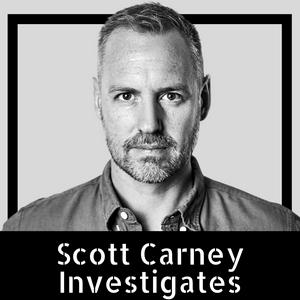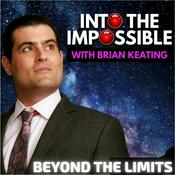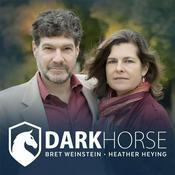68 Episoden
- When thousands of ICE agents descended on Minneapolis and began kidnapping people off the streets, the residents didn’t just stand by and let it all happen. Ordinary citizens like you and me spontaneously organized on Signal chats and began tracking ICE’s movements through they city. They warned their most vulnerable neighbors with whistles and car alarms and video taped arrests across the city. Friends of mine began delivering food to people too scared to leave their houses and carpooled their children to school. All of this happened in the face of ever-increasing violence from a fascist-anti-democratic state with seemingly unlimited resources to spend on harassing ordinary Americans. On today’s show I wanted to reflect on the miraculous organization of an effective citizen resistance in Minneapolis and offer hope to people in other cities who have not yet had ICE land on their doorstep. The murders of Renee Good and Alex Pretti have supercharged the active resistance movement in across America. The lessons of Minneapolis will spread across the country. In this video I’m going to discuss how you can get involved and join the resistance more actively than just posting angry messages on social media. My guest today is Jack Jones, better known as Quadzilla. He’s an ex-army infantryman and wild land firefighter who has been organizing information about the decline of America’s democratic order and fall into totalitarianism. When I first started following him a year ago my thoughts were–oh man, this guy is extreme. He was telling Americans to arm themselves and get ready for occupation. I think that Jack was something of an oracle who saw what was happening before anyone wanted to believe he was right. Get Early Access on Substackhttps://sgcarney.substack.com/
- As tech companies attempt to deploy artificial intelligence into every possible facet of life–from education, to scheduling your calendar, to responding to emails, answering random questions, decoding DNA and even psycho therapy–we really have no idea how mass adoption of LLMs for basically every task will affect society at large. It’s sort of like we’re running a giant experiment on humanity with no control group and just the hope that immeasurably wealthy tech companies will steward in a brighter future. But we all know that cracks have been showing up in the AI facade. And one of those cracks is what psychologist have begun to term “AI Psychosis” – which is ….well…let’s leave that for the guests on the show today. Ragy Girgis and Amandeep Jutla are two professors of clinical psychiatry at Columbia university on the forefront of the discussion on how AI models are driving some of us….mad.Get Early Access on Substackhttps://sgcarney.substack.com/
- The mental health of the American president is critical to the future of the country–and it’s clear to even a casual observer of Donald Trump that his patterns of speech, inability to state the truth on just about any subject, and the apparent joy he gets out of watching other people suffer–indicate that something strange is going on in the way he perceives the world.Psychiatrists are often reluctant to speculate diagnosing someone in the absence of a face-to-face clinical exam. And yet, it appears that Trump has taken several such exams–including brain scans and mental acuity tests–that he brags about, but never releases reports on. Which is why I have brought Frank George, Ph.D. onto the show today. George holds a PhD in Psychology and Neuroscience from the University of Colorado Boulder, and was formerly the Chief of Behavioral and Biochemical Genetics at the National Institutes of Health (NIH). He’s an expert on narcissistic personality disorder and writes a popular substack that focuses on Trump’s Mental state called “The Gaslight Report” which I highly recommend you take a look at.Get Early Access on Substackhttps://sgcarney.substack.com/Join this channel to get access to perks:https://www.youtube.com/channel/UC3PyxGKt94kLzVqkkjEgRFw/join
- The AI boom is a bubble and more important: when it’s most likely to finally pop.Venture capitalists and governments have invested almost a Trillion dollars in AI tech and infrastructure which has translated to AI companies being responsible for 92% of the stock market growth in 2025. Both the biggest AI boosters AND its most ardent detractors agree that the bull run will end in radical changes to the economy, politics and maybe even human civilization. alt title: Is the AI Boom the Biggest Ponzi Scheme in History?Get Early Access on Substackhttps://sgcarney.substack.com/
Weitere Wissenschaft Podcasts
Trending Wissenschaft Podcasts
Über Scott Carney Investigates
Investigative journalist Scott Carney explores true crime, cult psychology, biohacking, fitness revolutions, climate change calamities, organ trafficking and a whole lot more. Get exclusive access and bonus material at Patreon https://patreon.com/sgcarney
©PokeyBear LLC 2023-
Podcast-WebsiteHöre Scott Carney Investigates, IQ - Wissenschaft und Forschung und viele andere Podcasts aus aller Welt mit der radio.de-App

Hol dir die kostenlose radio.de App
- Sender und Podcasts favorisieren
- Streamen via Wifi oder Bluetooth
- Unterstützt Carplay & Android Auto
- viele weitere App Funktionen
Hol dir die kostenlose radio.de App
- Sender und Podcasts favorisieren
- Streamen via Wifi oder Bluetooth
- Unterstützt Carplay & Android Auto
- viele weitere App Funktionen


Scott Carney Investigates
Code scannen,
App laden,
loshören.
App laden,
loshören.








































